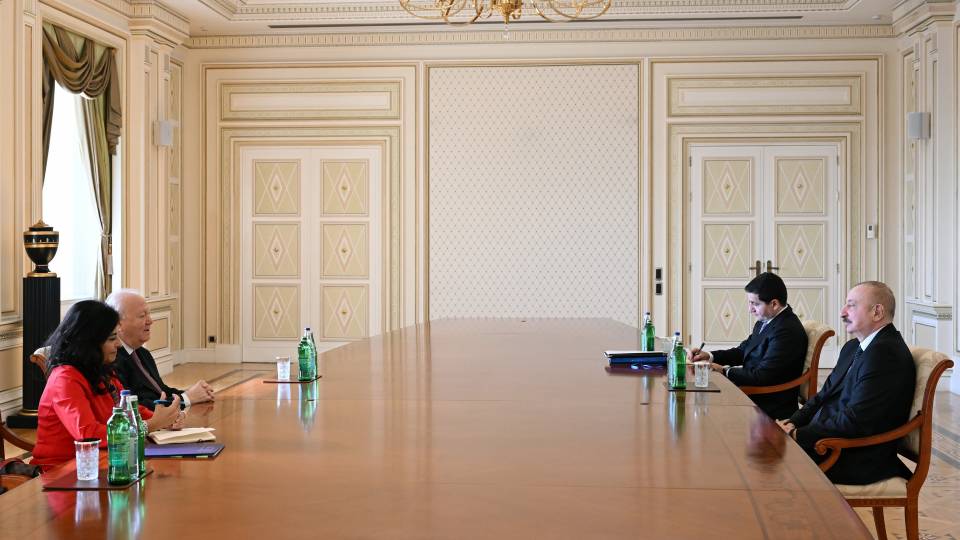18:00
Eurasia.net: Does Kyrgyz Instability Augur a Larger Transit Role for Azerbaijan in Afghan Campaign?
28 June 2010, 12:30
Eurasia.net
June 28, 2010
With ongoing instability in Kyrgyzstan, Azerbaijan’s role as a logistics point for US and NATO operations in Afghanistan could take on heightened importance, military and political experts in Baku believe.
A recent visit by US Defense Secretary Robert Gates to Baku underlined the importance of that role for Washington. US Secretary of State Hillary Rodham Clinton is expected to continue the official outreach with a visit to Azerbaijan, Armenia and Georgia sometime between July 1 and July 5. An exact date for Clinton’s visit to Baku has not been released, but the Azerbaijani news agency Turan, citing an anonymous source, reported that the trip would occur July 3-4.
At a June 25 briefing, Assistant Secretary of State Philip J. Crowley suggested the Clinton mission would focus on Washington’s interest in “normalized relations among Turkey, Armenia and Azerbaijan.” Aside from that longstanding problem, however, Clinton’s trip, coming on the heels of Gates’s June 6-7 visit, is directing attention toward Azerbaijan’s role in the US and NATO campaign in Afghanistan. [For details, see the EurasiaNet.org archive].
Roughly a quarter of all supplies bound for Afghanistan travel via Azerbaijan. And since 2001, about 100,000 military personnel have also traveled through “the Caucasus spur,” a designation that includes Azerbaijan, on their way to deployment in Afghanistan, according to Pentagon data.
Aside from transit, Baku has a contingent of 90 soldiers serving in Afghanistan, and is providing assistance with de-mining, rebuilding schools and training Afghan doctors. The Azerbaijani government has recently expressed interest in both increasing its troop presence and its humanitarian assistance.
Beyond possibly probing a larger transit role, American officials are looking into the possibility of using Azerbaijan as a supply source. The Azerbaijani Ministry of Defense Industry signed protocols in mid-May with three US weapons manufacturers for the production of mortars, machine guns, grenades and cartridges, the APA news agency reported. Defense Industry Minister Yaver Jamalov said on May 14 that the US companies’ representatives will visit Azerbaijan soon to test the pilot products and possibly to sign contracts. He did not name the companies.
The Gates visit signaled to some Baku analysts that Washington has plans for Azerbaijan to take on a bigger support role in Afghan operations -- particularly in the wake of the recent violence and instability in Kyrgyzstan, where the US government has faced ongoing headaches over its air base at Manas, a critical supply hub for Afghanistan. [For background see EurasiaNet’s archive].
“Gates has delivered [US President Barack] Obama’s message that Azerbaijan remains an important partner for the United States in the region,” said Jesur Sumarinli, editor-in-chief of the Milaz.info military digest.
Former presidential foreign policy aide Vafa Guluzade agreed, calling the unrest in Kyrgyzstan signs of “a possible major destabilization in Central Asia.” That instability is likely prompting the United States to hedge its bets by bolstering relations with Azerbaijan. “I would not exclude the possibility of a re-deployment of part of the Manas air base to Azerbaijan as a backup part of [coalition forces’] military infrastructure,” he said.
Earlier in June, the Azerbaijani parliament adopted a new military doctrine that allows for the placement of foreign military bases on Azerbaijani soil “in exceptional circumstances.” This provoked local media speculation that the groundwork was being laid for a US base in Azerbaijan.
Guluzade argued that Kyrgyzstan’s risks would make such an option “a good solution for Washington.” He recalled a 1999 meeting at which then-president Heidar Aliyev, the father of Azerbaijan’s current leader, offered US Secretary of State Madeleine Albright a US base in Azerbaijan as “a safeguard of the country’s national security and its independence.” Albright declined the offer, he added. Guluzade served at the time as an adviser to Heidar Aliyev.
Spokespersons for the Azerbaijani foreign and defense ministries declined to comment on whether or not such basing-related issues came up in discussions during Gates’ visit. The US Department of Defense has not commented publicly on the topic.
Ongoing headaches over the Manas fuel supply, however, have caused “weariness and wariness” of Kyrgyzstan’s provisional government within the Pentagon and State Department, one observer recently told EurasiaNet.org. The US lease at Manas expires in 2011.
Sumarinli, military expert, said it still seemed unlikely that Azerbaijani officials, under current conditions, would agree to host an American base. “One can imagine Russia’s and Iran’s reaction if this comes true. I do not think Baku is ready for such drastic moves,” he said.
Rather, Baku’s desire to strengthen its ties with the US on Afghanistan stems from a more pragmatic interest -- resolution of the conflict with Armenia over the breakaway region of Nagorno Karabakh, Sumarinli believes. “The Azerbaijani government says that it is willing to help the United States to solve its problems in Afghanistan. But it wants support in return, the support for resolution of Azerbaijan’s problems with Armenia,” Sumarinli said. “This is the main issue for [President Ilham] Aliyev.”
Tension connected with the Karabakh peace process has been on the rise lately. Recent skirmishes along the so-called contact line left four Armenian and two Azerbaijani soldiers dead. The skirmishes took place after a June 18-19 trilateral summit between Aliyev and Russian President Dmitry Medvedev and Armenian President Serzh Sargsyan that appeared to yield nothing in the way of progress toward a lasting peace settlement.
As a member of the Organization for Security and Cooperation in Europe group of countries overseeing talks between Azerbaijan and Armenia, Washington would face clear limits on its ability to promote Azerbaijani positions within the talks.
Editor's note: Shahin Abbasov is a freelance correspondent based in Baku. He is also a board member of the Open Society Institute-Azerbaijan.
18:00
16:52
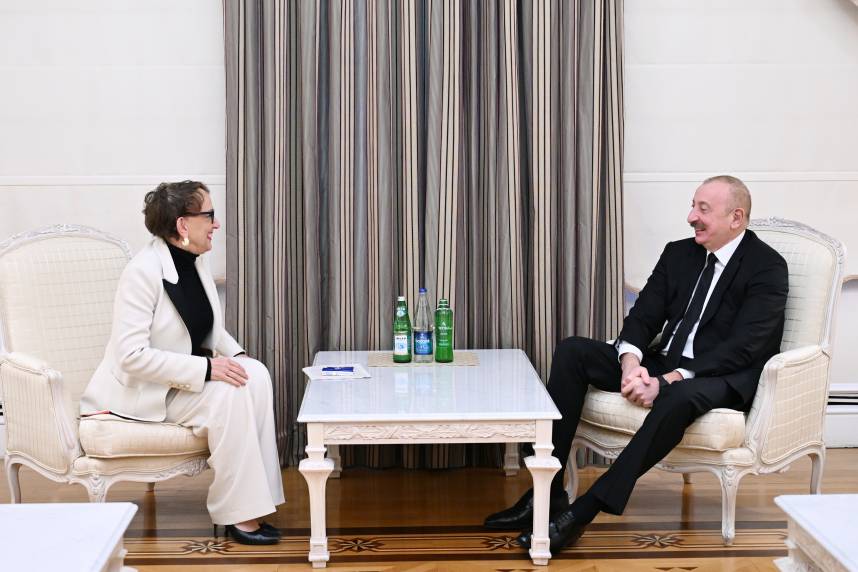
16:11
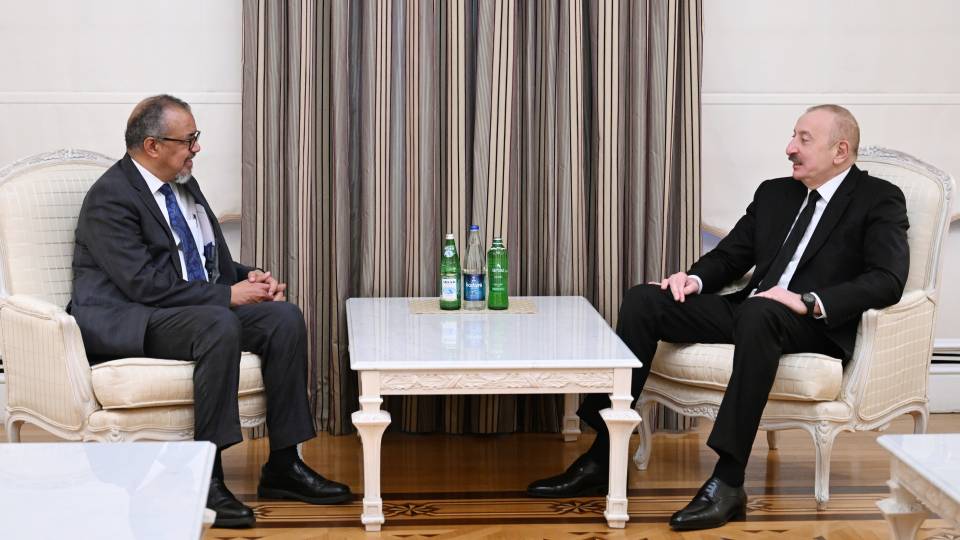
15:31
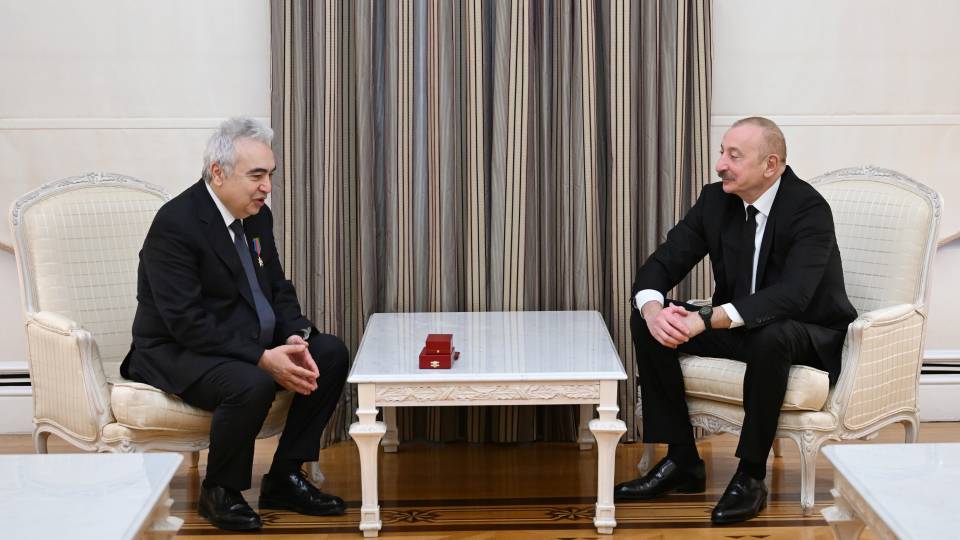
15:07
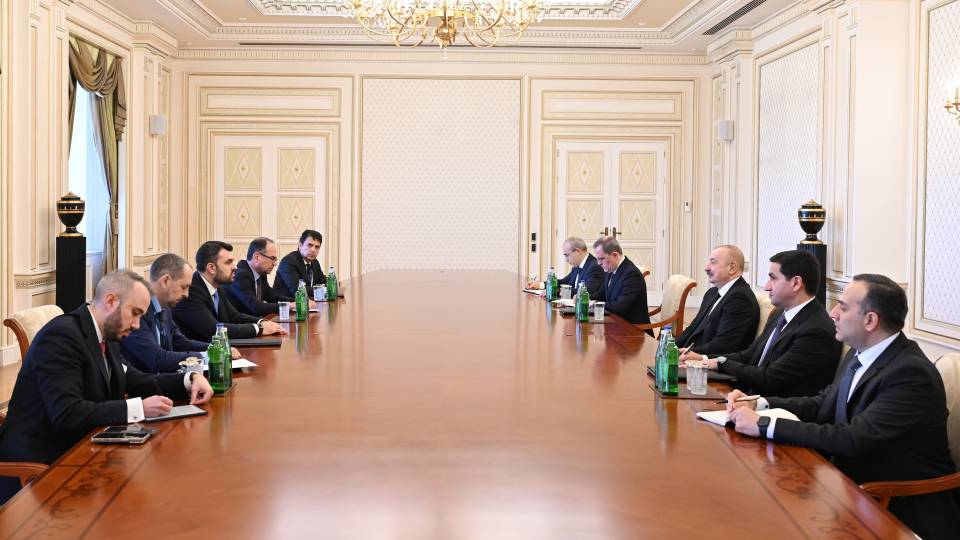
14:20
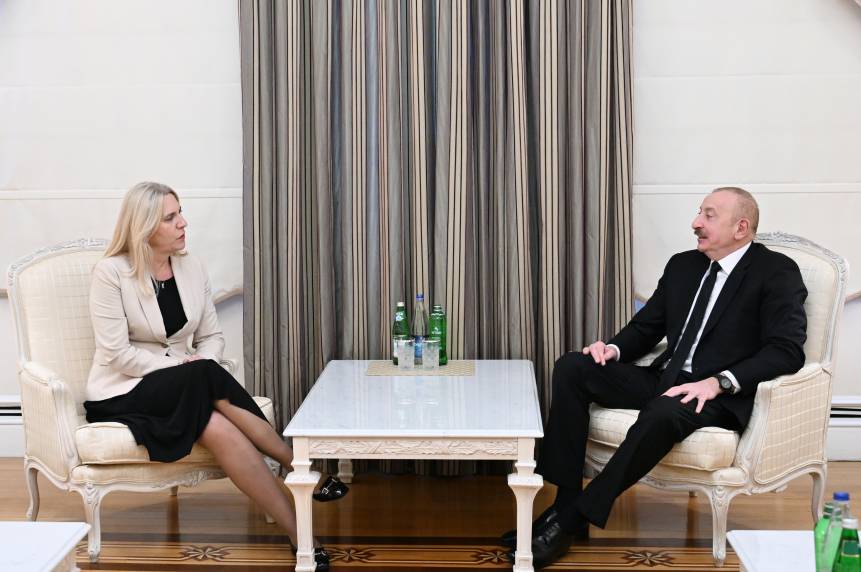
13:30
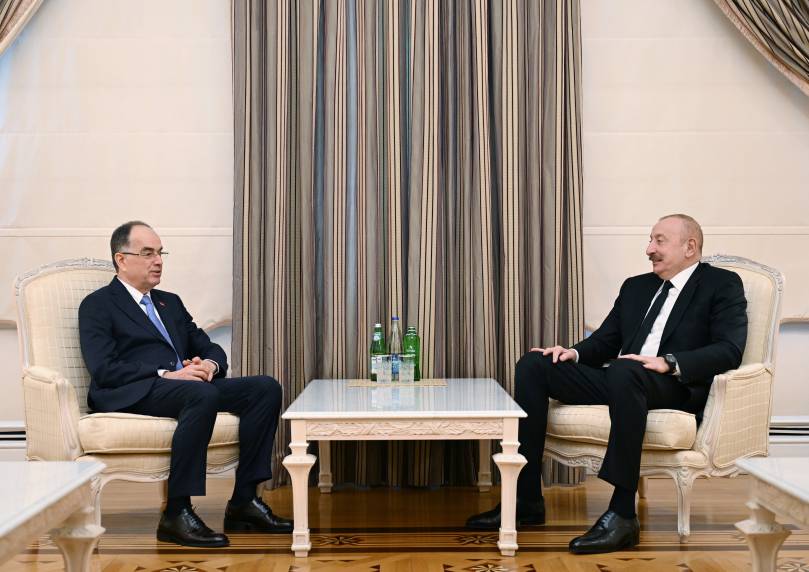
11:30
Your Holiness,
On my behalf and on behalf of the people of Azerbaijan, I convey to you and, through you, to all your co-religionists, my most sincere congratulations on the occasion of your Election Anniversary.
The current level of relations between Azerbaijan and...
13 March 2025, 11:3010:10
18:00
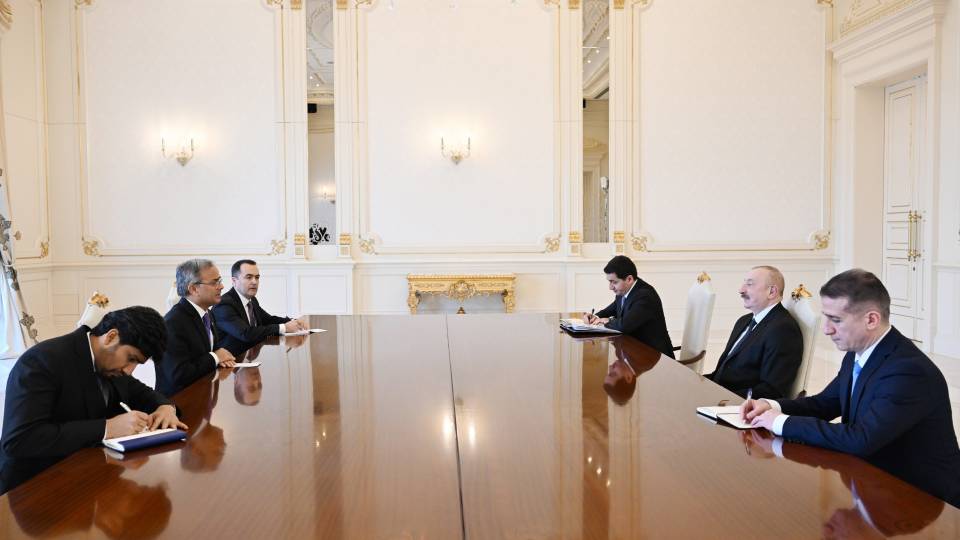
11:38
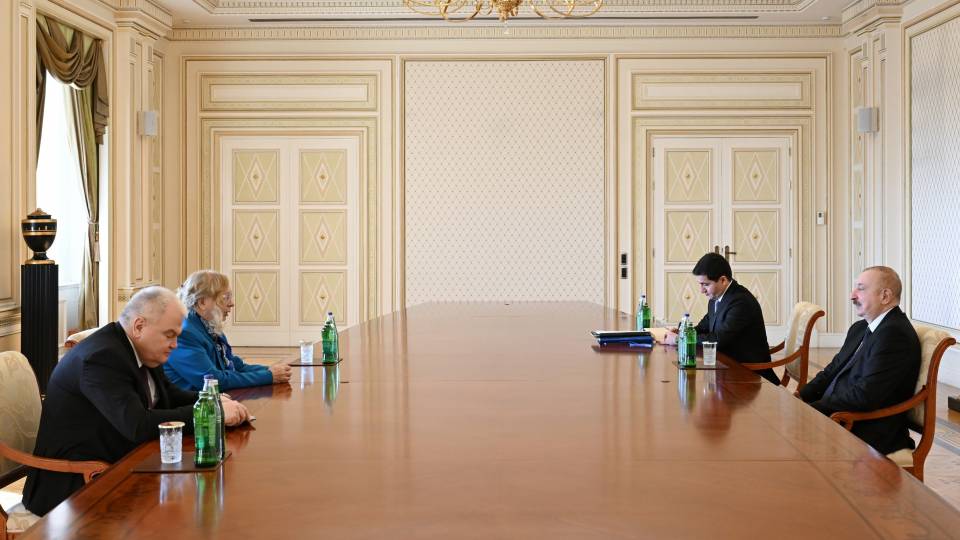
11:24
